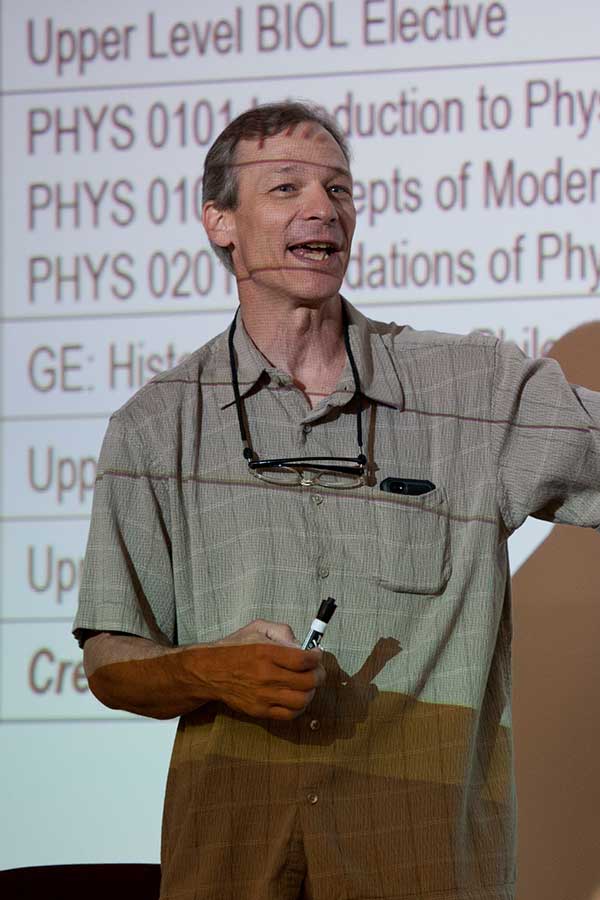
Pre-Podiatry
You can help people stand steady and strong by helping them take care of their feet, ankles and lower legs.
Why study pre-podiatry at Pitt-Bradford?
U.S. News & World Report ranked podiatrists 22nd on the 100 Best Jobs list for 2019.
If you want to become a podiatrist, you’ll need to take many prerequisite courses that podiatry schools require. We will work closely with you to make sure you have taken the appropriate courses. You’ll have many opportunities to complete other highly recommended activities that the podiatry schools are looking for, such as undergraduate research and podiatrist shadowing.
What will I learn?
You’ll get a solid foundation in the biological sciences, physical sciences, and behavioral sciences, so you will perform well on the MCAT exam that many podiatry schools require.
What can I do with a degree in pre-podiatry?
The undergraduate research and podiatrist shadowing experiences will help you become a strong candidate in today’s competitive podiatry school application process.
Employers:
- Podiatric clinics
- Hospitals
- Biomedical research labs
- Podiatric medical schools
- Sports teams
- Military
- Medical care equipment service
Featured Courses
-
BIOL 0212
Human Anatomy And Physiology 1A study of the gross and microscopic anatomy, physiology, and homeostatic mechanisms of the human body, stressing the relationship of structure to function. This semester covers cell types and tissues and the cellular processes of osmosis, diffusion, and active and passive transport; the integumentary system; the skeletal system and joints and bone metabolism; the muscular system and mechanisms of muscular contraction; the nervous system, mechanism of nerve impulse conduction, and the special and somatic senses. Three hours of lecture per week. -
BIOL 1302
MicrobiologyPrinciples of microbiology and immunology including the morphology, physiology, taxonomy, genetics and ecology of micro-0rganisms. Viruses, prokaryotes and eukaryotic micro organisms including algae, fungi and protozoa will be studied.